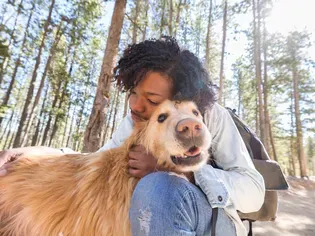Dealing With Guilt After Putting a Pet to Sleep
Updated on 05/27/24

Overcoming the Heartbreaking Guilt After Putting Your Beloved Pet to Sleep
Saying goodbye to our furry companions is one of the most emotionally challenging experiences we can face as pet owners. The guilt that can accompany this decision can be overwhelming, leaving us feeling lost and alone. However, it's important to remember that our guilt is a testament to the immense love we have for our pets and that it's possible to find healing and peace in the midst of our grief.
Understanding the Nature of Guilt
Guilt often arises from our feelings of responsibility towards our pets and the belief that we could have done more to prevent their passing. It's essential to recognize that guilt is a natural and human response to loss.
However, excessive or prolonged guilt can take a detrimental toll on our mental health. Understanding the nature of guilt can help us develop coping mechanisms and find ways to process our emotions in a healthy way.
Examples of Guilt-Inducing Thoughts:
* "I didn't notice the signs of their illness sooner."
* "I should have taken them to the vet more often."
* "I didn't give them the best life possible."
Reframing Our Thoughts
While it's important to acknowledge our guilt, it's equally crucial to reframe our thoughts and focus on the positive aspects of our relationship with our pets.
* Remember the joy and love they brought into our lives.
* Appreciate the time we had together, even if it was cut short.
* Recognize that we made the best decision we could, based on the information we had at the time.
Finding Solace through Meaning-Making
Meaning-making is the process of finding purpose and significance in our experiences, including the loss of a loved one. It can help us cope with grief and reduce feelings of guilt.
Ways to find meaning in our pets' lives:
* Create a memorial or tribute to them.
* Share stories and memories with others.
* Volunteer at an animal shelter or rescue organization.
* Support organizations that provide end-of-life care for pets.
Seeking Professional Help
If the guilt is persistent or interferes with our daily life, seeking professional help is advisable. A therapist can provide a safe and supportive environment to process our emotions, develop coping mechanisms, and find healing.
Additional Tips for Coping with Guilt:
* Allow yourself to grieve. Don't suppress your emotions or feel pressured to "get over it" quickly.
* Talk to friends, family, or a support group. Sharing our experiences with others can provide comfort and validation.
* Practice self-care. Engage in activities that bring joy and relaxation, such as spending time in nature or pursuing hobbies.
* Remember that your pet would want you to be happy. Focus on honoring their memory by living a full and meaningful life.
Remember, the love you have for your pet is a powerful force that will guide you through this difficult journey. By understanding the nature of guilt, reframing our thoughts, finding meaning, and seeking support, we can overcome the guilt and find peace and healing in the memory of our beloved companions.
Explore More Pets

Cat Behavior Problems
How to Stop Aggression in Kittens

Long-Haired Cat Breeds
Siberian Cat: Breed Profile, Characteristics, & Care

Cat Behavior Problems
How to Stop Kittens From Scratching and Biting

Long-Haired Cat Breeds
Turkish Angora: Cat Breed Profile, Characteristics & Care

Basic Training
How to Socialize Your Kitten

Short-Haired Cat Breeds
Cute Pictures & Facts About Calico Cats & Kittens

Litter Box Training
Training Your Kitten to Use the Litter Box

Long-Haired Cat Breeds
10 Fun Facts About White Cats
